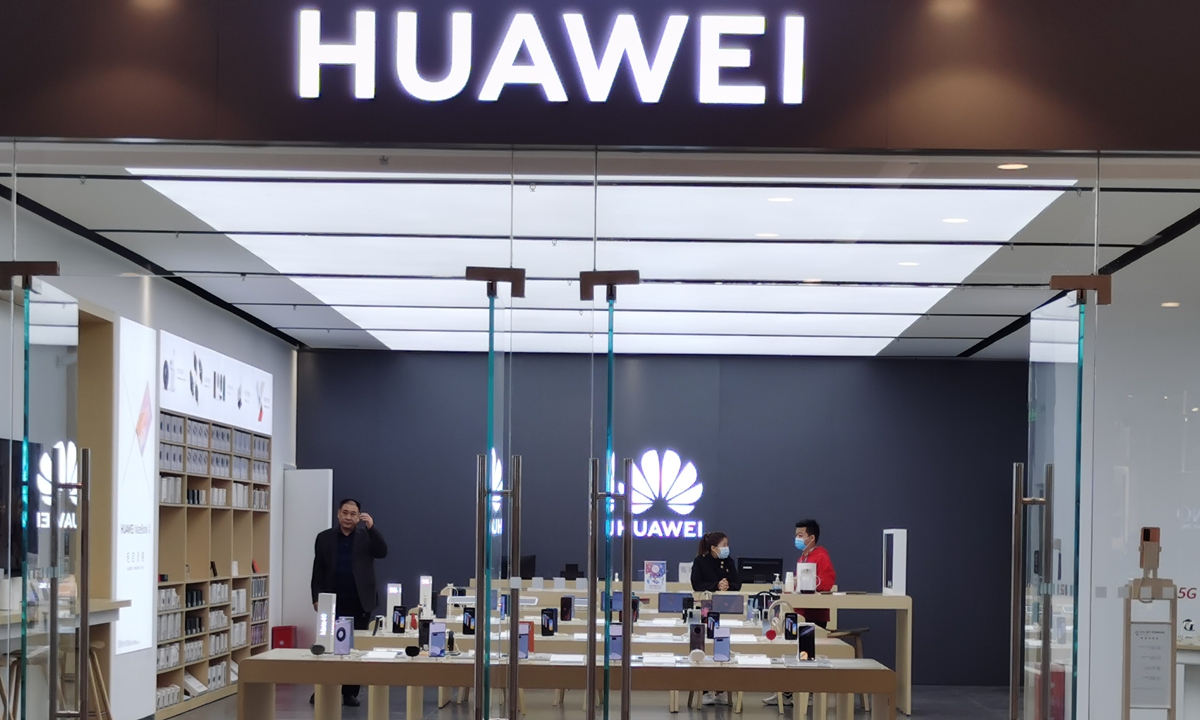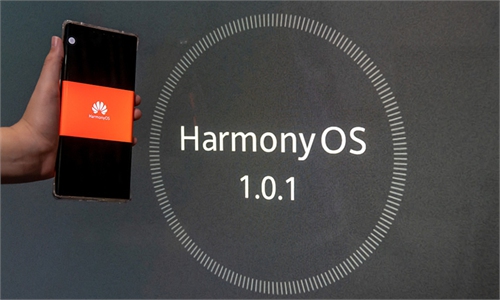
A view of a Huawei store in Central China's Henan Province in November 2020 Photo: cnsphoto
Huawei has proposed several times that it's ready to sell the rights to all its 5G patents including licenses, code, and technical blueprints in a one-off transaction to US firms, a move analysts said could help US, which has already been marginalized in the 5G sector, quickly catch up.
The Chinese tech firm's founder and CEO Ren Zhengfei first said in a two-hour interview with The Economist in September 2019, when the firm was under a severe crackdown from then US President Donald Trump, that Huawei is willing to sell its 5G technology to a Western buyer for a one-time fee.
The transaction, if made, can give the buyer perpetual access to Huawei's existing 5G patents, licenses, code, technical blueprints and production know-how. Ren said in 2019 that he had no idea who might be interested in buying, and he did not put an amount on how much the "5G package" might be worth.
Two years after, in an article titled Huawei to Joe Biden: Please Talk to us!, Vincent Peng, a senior vice president at Huawei, mentioned the 5G deal again, and also indicated "some progress."
"Washington may want to consider Ren's offer to license Huawei's 5G technology to an American company. The agreement could include part or all of Huawei's 5G patent portfolio, including software source code, hardware designs and technologies related to manufacturing, network planning and testing," Peng said.
The senior executive further said in the article that "there are several US companies that could take this on," and "it seems reasonable to assume that one or two might be interested in learning more." Peng added that these US firms "are unlikely to speak up without the US government's blessings."
The deal is in the US companies' interests, who are now lagging behind in the 5G race globally, Xiang Ligang, director-general of the Beijing-based Information Consumption Alliance, told the Global Times on Friday.
The buyer could modify the source code, and produce 5G telecoms infrastructure as it wishes, and manufacture 5G infrastructure equipment at home. The US has no 5G infrastructure equipment maker now, Xiang said.
In the past five years, only Huawei, Sweden's Ericsson and Finland's Nokia captured more than a 20 percent share of revenue in the wireless equipment market, according to a report of the Wall Street Journal, citing data from research firm Dell'Oro Group. No other competitor consistently cracked even 10 percent.
US firms like Motorola and Cisco Systems may be willing to be the buyer, and help them quickly catch up, analysts said.
Xiang warned that if the deal comes true, which literally means Huawei's technology will have no so-called national security risks, then some European countries' move to abandon Huawei's equipment might also be meaningless and could be a waste of time and money.
However, the offer, which could have been a win-win solution for both the US, which is eager to strengthen its 5G ability, and Huawei to quell so-called national security concerns, may be rejected by the US government, as it might be too proud to buy any technology from a single Chinese firm, Ma Jihua, an industry analyst who closely follows Huawei, told the Global Times on Friday.
"Huawei did not make it clear is that if Huawei sells its core technology - key to its future revenue and could create a strong US rival in 6G research - the US has to loosen its chip ban on the firm as well," Ma said.
To curb Huawei's tech rise, curb interests of the US firm, or lift its ban and benefit the development of the US firm, is up to the Biden administration, analysts said.

